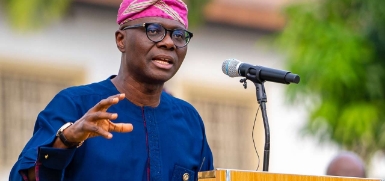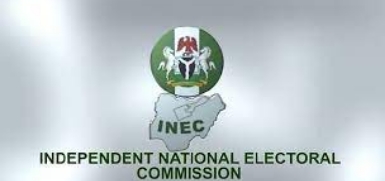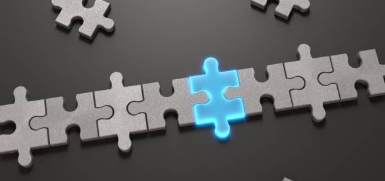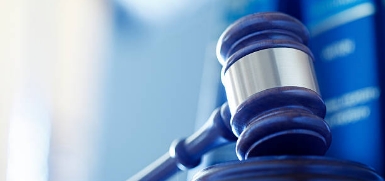INTRODUCTION
According to Wikipedia IT-backed authoritarianism or digital authoritarianism refers to an authoritarian regime using cutting-edge information technology in order to penetrate, control and shape the behavior of actors within society and the economy.
According to Jason Thacker (2020),Digital authoritarianism, also known as techno-authoritarianism, is the way that many leaders around the world wield the power of the internet and technology to gain or solidify control over their people. Authoritarianism is not a new concept, but in recent years there seems to be a growing trend of leaders using technology in order to strengthen their ruling power and attain growing influence around the world.
LEGAL POINT OF VIEW.
The Section 37 of Nigeria’s 1999 constitution forms the foundation of data privacy rights and protection in Nigeria. Section 37 guarantees and protects the right of Nigerians to privacy with respect to their homes, correspondence, telephone conversations and telegraphic communications. It deems Privacy in this respect a fundamental right which is enforceable in a court of law when breached. Prior to the NDPR, most cases of data privacy breaches were enforced under this section.
NITDA Act establishes NITDA as the regulating agency for all information technology matters in Nigeria.12 NITDA is the principal regulatory agency in Nigeria for online platforms that facilitate consumers sending communications to each other via the internet in text, picture or video format. It is the agency responsible for regulating online platforms that enable the creation and sharing of amateur and professionally produced content. NITDA is empowered under the Act to make regulations and issue guidelines for the development, monitoring, evaluation and regulation of information technology practices, activities and systems in Nigeria and all matters related to and for that purpose. It is also empowered to develop guidelines for electronic governance and to monitor the use of electronic data interchange and other forms of electronic communication transactions.
Further to its powers under the Act, NITDA issued the NDPR in 2019. The objectives of the NDPR are to safeguard the rights of natural persons to data privacy, to foster safe conduct for transactions involving the exchange of Personal Data and to prevent manipulation of Personal data.
NITDA Act, 2007 states that Nigerian users are therefore entitled to their privacy in their communications and online platforms must consider privacy issues when sharing user data.
CASES OF BREACH OF DIGITAL RIGHTS
In October 2019, a law enforcement agency disclosed the use of sophisticated spyware that can forensically search electronic devices, including on devices belonging to journalists .
A February 2020 report revealed how police also accessed call records from service providers to arrest journalists, by accessing contacts and compelling those individuals to call targeted journalists into police stations.
On June 4th, the Nigerian government announced an “indefinite suspension” of Twitter after the social media company deleted a controversial tweet by Nigerian President Muhammadu Buhari. The Nigerian government’s Twitter ban and its recent history of attempts to more stringently regulate online speech present a cautionary tale about the rise of digital authoritarianism.
According to Tsema Ede-Okoye( 2019,),Nigeria’s secret police announced a nationwide crackdown on persons who allegedly post inciting comments on social media; a clear violation on citizens’ freedom of speech. This announcement followed their declaration that some social media users were arrested for posting “inciting comments” on social media. It will be interesting to note that these arrests happened on Nigeria’s Democracy Day.
Tesema further noted that Followers of Nigeria’s digital space, in recent years, will know that these developments do not come as a surprise to human rights advocates. The Nigerian Government has been investing in monitoring and policing social media expressions by citizens.Nigeria has experienced a huge decline in human rights enforcement and protection. Several activists have been arrested for comments they posted on their social media handles and online blogs. Social commentators have been arrested by security operatives for offenses in violation of preposterous provisions of archaic laws and on trumped-up charges.One may question how a country celebrate her transition from military dictatorship to democracy by arresting citizens for posting comments on social media? Social media is awash with commentary that Nigeria, in this present dispensation, is not a democracy, but a country under civilian rule.Freedom of speech is the right to articulate one’s opinions and ideas without fear of government retaliation or censorship. The term freedom of expression is sometimes used synonymously, but includes any act of seeking, receiving and imparting information or ideas, regardless of the medium used.
CONCLUSION
The leaders in Nigeria has seized the oppournites of pre-independence of some existing laws in the nation to down play the rights and freedom mostly in the media as bloggers and online news agencies are not left out in this abuse. provokely,Nigeria withnessed the birth of another law recently in 2015, and the section of this law relating to cyberstalking has been a coverup for massive arrests and detainsion. Section 24 of the Cybercrimes (Prohibition, Prevention, Etc) Act, 2015, defines, describes and penalises a crime known as Cyberstalking.
However,Protecting and Promoting Internet Freedom can be remedied following the listed solutions:;
Policymakers should reject undue restrictions on access to information and free expression, especially during a pandemic.
Ensure that all internet-related laws and practices adhere to international human rights law and standards,
Utilize strategic litigation to push back against shutdowns and censorship, Civil society groups should
Restrict the export of censorship and surveillance technology.







